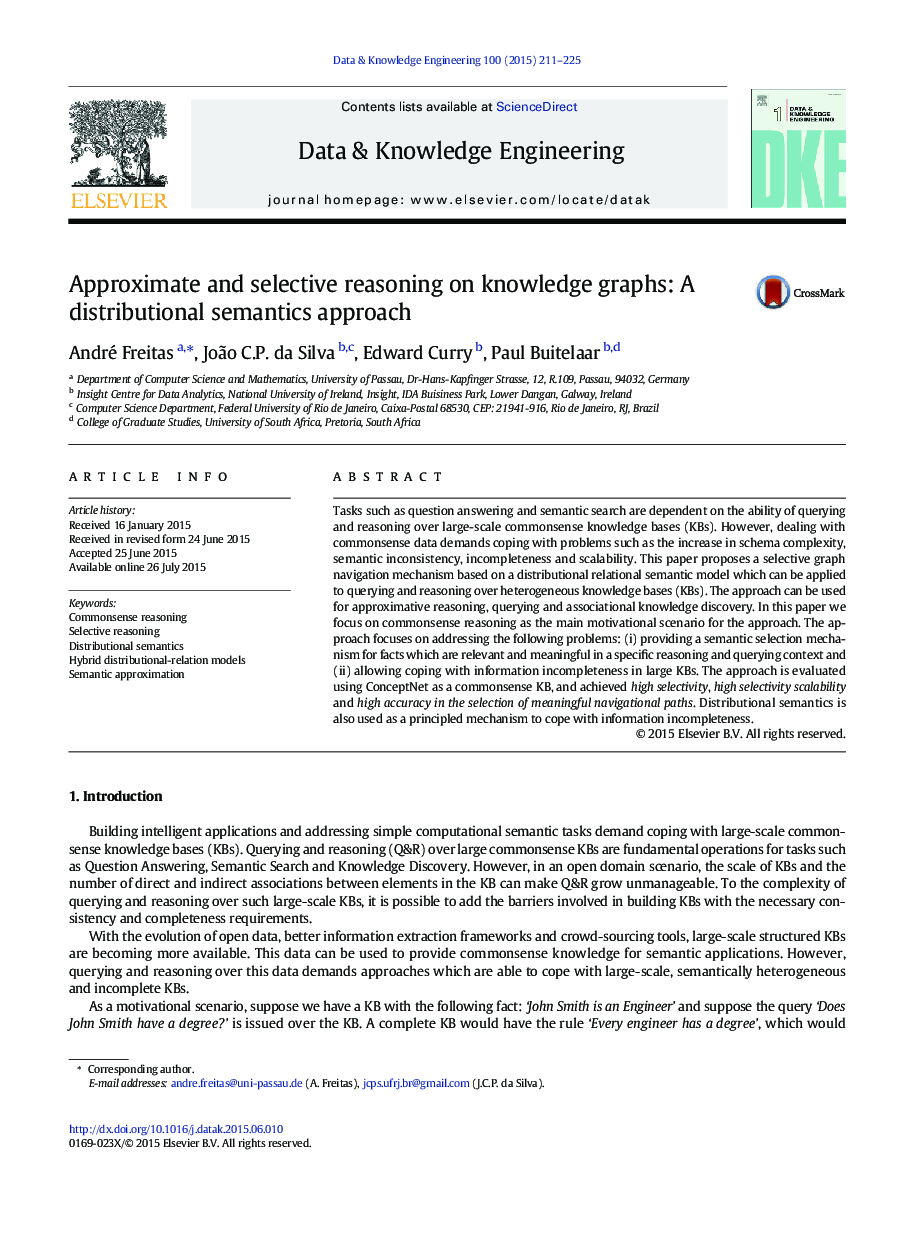| Article ID | Journal | Published Year | Pages | File Type |
|---|---|---|---|---|
| 378695 | Data & Knowledge Engineering | 2015 | 15 Pages |
Tasks such as question answering and semantic search are dependent on the ability of querying and reasoning over large-scale commonsense knowledge bases (KBs). However, dealing with commonsense data demands coping with problems such as the increase in schema complexity, semantic inconsistency, incompleteness and scalability. This paper proposes a selective graph navigation mechanism based on a distributional relational semantic model which can be applied to querying and reasoning over heterogeneous knowledge bases (KBs). The approach can be used for approximative reasoning, querying and associational knowledge discovery. In this paper we focus on commonsense reasoning as the main motivational scenario for the approach. The approach focuses on addressing the following problems: (i) providing a semantic selection mechanism for facts which are relevant and meaningful in a specific reasoning and querying context and (ii) allowing coping with information incompleteness in large KBs. The approach is evaluated using ConceptNet as a commonsense KB, and achieved high selectivity, high selectivity scalability and high accuracy in the selection of meaningful navigational paths. Distributional semantics is also used as a principled mechanism to cope with information incompleteness.
